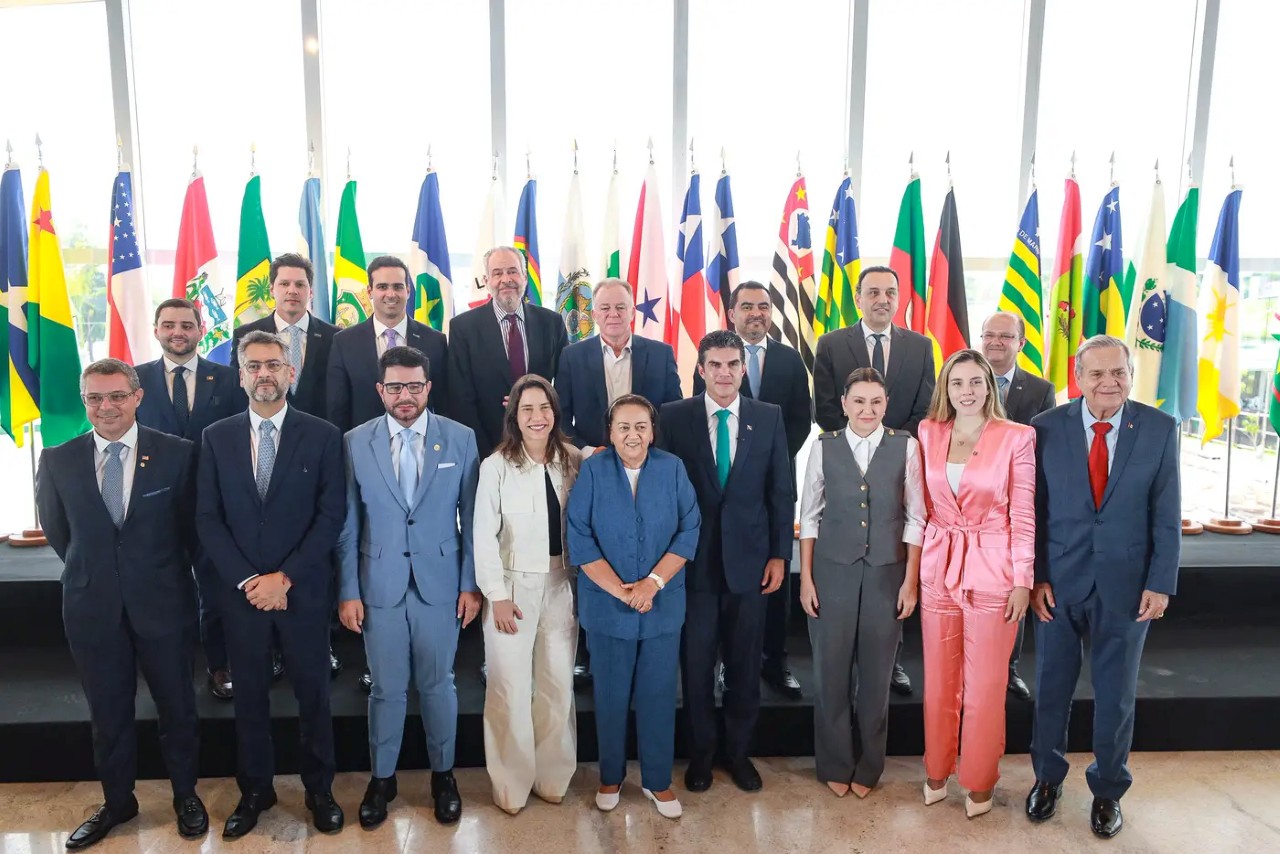Governors Sign Letter in Support of Hosting COP30 in Belém
A total of 19 state representatives reaffirmed their commitment to the conference; COP30 President underscores the role of subnational governments in addressing climate change.

By Laura Marques / COP30
During a meeting of the National Forum of Governors on Wednesday (August 13) in Belém, Pará, 19 governors and vice governors reiterated their support for holding the United Nations Climate Change Conference in the capital of Pará, from November 10 to 21, 2025. On the occasion, COP30 President, Ambassador André Corrêa do Lago, highlighted the role of states in tackling climate change during the event.
The 19 state representatives signed a declaration of support for the conference in Belém. The document emphasizes the symbolism of hosting the climate convention in the Amazon and expresses confidence in the city’s logistical preparations to host the meeting.
The governors’ declaration states that holding COP30 in Pará “reflects the commitment of Brasil’s subnational governments to global climate guidelines and to the necessary leadership of Brasil in addressing global environmental challenges."
“Brasil must become increasingly engaged and united in this extraordinary moment for the environment and the fight against climate change,” said Pará Governor Helder Barbalho. “Brasil has the opportunity to build and lead the global agenda for sustainability and for economic, ecological, and social transition—drawing from practices already in place within our own territory,” he added.
Ambassador André Corrêa do Lago emphasized that the participation of governors is fundamental to the success of COPs. “Subnational entities are among the main actors responsible for implementing climate agreements, alongside the private sector, academia, and civil society,” he told reporters after the meeting.
In his remarks, the diplomat reiterated the COP30 Action Agenda, which seeks to engage all sectors of the economy, segments of society, and levels of government to accelerate the fulfillment of climate commitments. Rather than complementing negotiations, the Action Agenda proposed by the Brazilian COP30 Presidency focuses on implementing already agreed-upon commitments, guided by the Paris Agreement’s Global Stocktake.
The Action Agenda is structured around six pillars encompassing mitigation, adaptation, and means of implementation, and includes 30 key objectives, each supported by activation groups. Concrete solutions and initiatives will be consolidated into a compendium that links climate ambition with development opportunities in areas such as investment, innovation, finance, technology, and capacity-building.
“The world will be looking to Brasil, and we will have the opportunity to showcase it as a country of solutions. Given Brasil’s diversity, there are projects that succeed in certain states and can serve as examples for other regions of the world,” the ambassador stressed.
Corrêa do Lago also noted that, over the past three decades of negotiations, the climate debate has evolved from an environmental and development issue into an economic and geopolitical one. According to him, one of the challenges is to make the negotiation process more directly relevant to people’s lives.
“If the climate agenda does not bring tangible benefits and improve people’s lives, it loses its purpose. It is essential that this agenda be one of sustainable development, one that creates rights and has the power to positively impact the population,” he stated.
List of state representatives who signed the letter in support of COP30:
1) Governor Gladson Cameli, (Acre);
2) Acting Governor Ronaldo Lessa (Alagoas);
3) Governor Clécio Luís (Amapá);
4) Governor Wilson Lima (Amazonas);
5) Vice-governor Jade Romero (Ceará);
6) Governor Renato Casagrande (Espírito Santo);
7) Vice-governor Daniel Vilela (Goiás);
8) Governor Mauro Mendes (Mato Grosso);
9) Acting Governor Barbosinha (Mato Grosso do Sul);
10) Governor Helder Barbalho (Pará);
11) Vice-Governor Lucas Ribeiro (Paraíba);
12) Governor Raquel Lyra (Pernambuco);
13) Governor Cláudio Castro (Rio de Janeiro);
14) Governor Fátima Bezerra (Rio Grande do Norte);
15) Vice-governor Gabriel Souza (Rio Grande do Sul);
16) Vice-governor Sérgio Gonçalves (Rondônia);
17) Vice-governor Felicio Ramuth (São Paulo);
18) Governor Fábio Mitidieri (Sergipe); and
19) Governor Wanderlei Barbosa (Tocantins).
